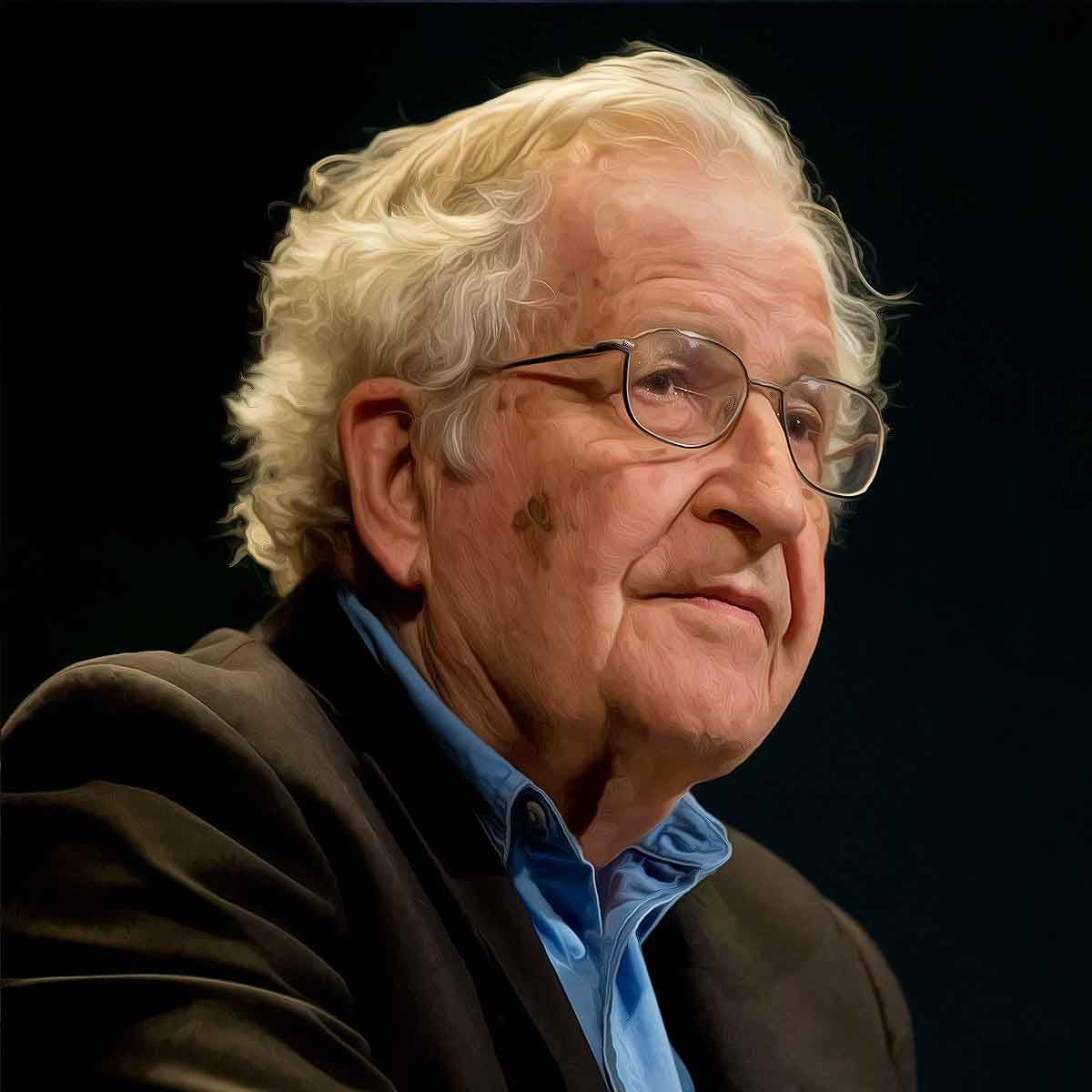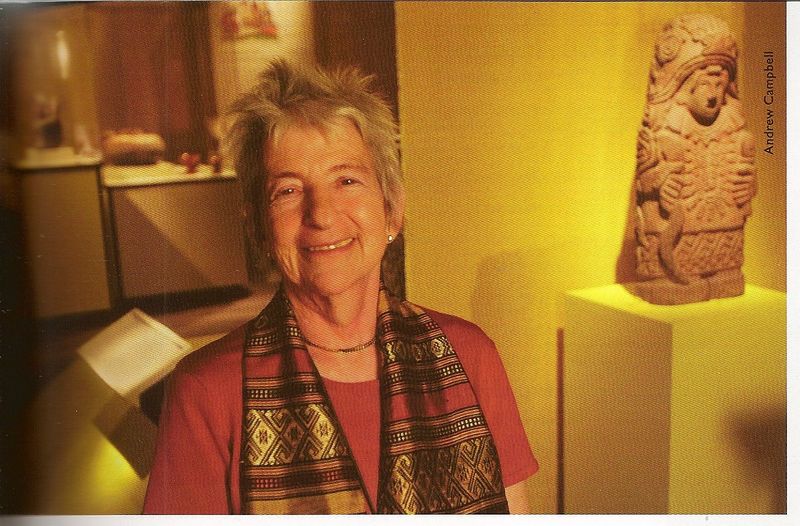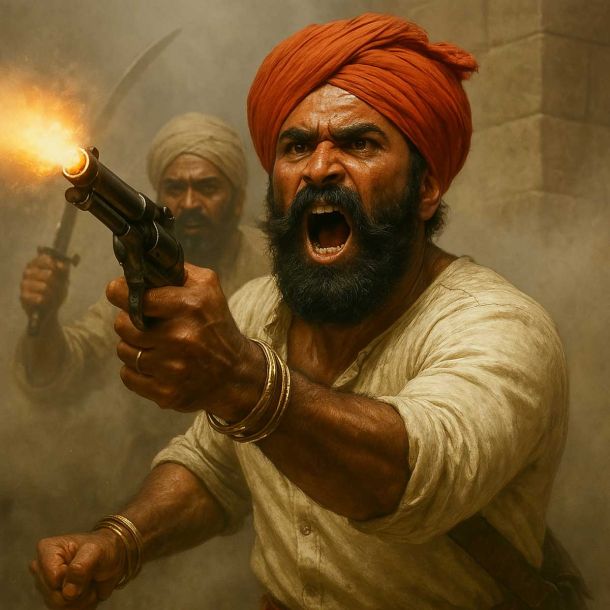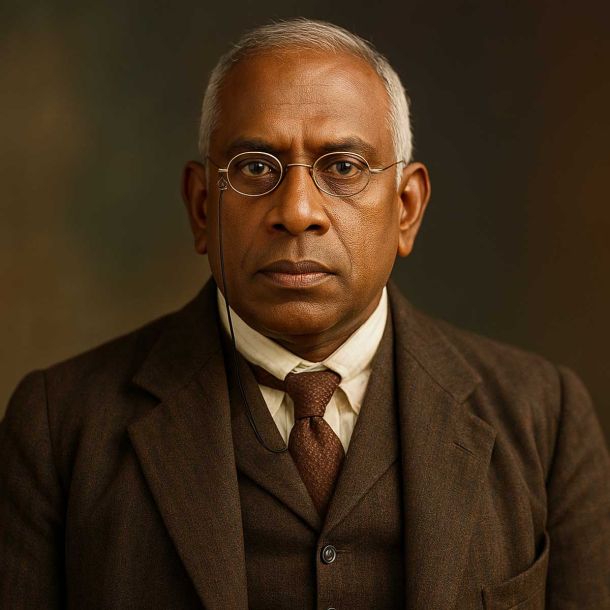MORE COVERAGE
"Basic tool for manipulation of reality is the manipulation of words": Prof Castellano blames the US and its unjust foreign policies for having provoked 9/11 horrors in the first place, not poor security but America’s “imperialist” policies accountable

WhenThe Professors was first published in February 2006, it was greeted by cries of outrage from the academic Left. The author was denounced as a reincarnation of Joseph McCarthy and his book as a “blacklist,” although no evidence existed to support either claim and both were the opposite of the truth.
Far from being a “blacklist,” the text explicitly—and in so many words—defended the right of professors to teach views that were unpopular without fear of political reprisal. The author also publicly defended the First Amendment rights of Ward Churchill, the most notable case of a professor under attack for his political views.
Critics of the university have long complained that the system of tenure, which provides lifetime job security, also serves to protect mediocrity and encourage incompetence. The efforts to politicize the curriculum over the last three decades have predictably created new opportunities for both tendencies to flourish. One factor contributing to the debasement of intellectual standards in the university is the politicized environment of the university itself. It is relatively easy for politically like-minded individuals to mistake adherence to partisan formulas for substantive thought and even intellectual achievement.
 |
Professor of archaeology and anthropology at Northwestern University - Elizabeth M. Brumfiel
Professor Elizabeth M. Brumfiel holds a prominent position at Northwestern University as a Professor of Archaeology and Anthropology. She has dedicated a quarter of a century to the field of teaching and imparting her knowledge to her students, during which she was associated with Albion College as a faculty member. There, she held a key position as the chair of the Anthropology and Sociology Department, contributing significantly to the growth and development of these disciplines. Currently, she serves as the president of the American Anthropological Association, which is recognized as the world's most extensive collective of anthropology scholars.
Earning her PhD from the University of Michigan, Professor Brumfiel explored various intriguing and complex themes such as the dynamics of gender, class, and factional politics in ancient Mexico. Moreover, she analyzed the changes in resource exploitation that were a consequence of Aztec expansion. She uses her extensive knowledge and research to teach a unique course on the "Archaeology of Inequality in America."
Throughout her academic career, she has been the recipient of numerous grants. These include grants from the National Endowment for the Humanities, the National Science Foundation, and the H. John Heinz III Charitable Trust. Her outstanding contributions to the field have been acknowledged by her presenting the Distinguished Lecture in Archaeology for the Archaeology division of the American Anthropological Association and the David L. Clarke Memorial Lecture at the University of Cambridge in 1997. Despite having edited four books and publishing numerous scientific papers, Professor Brumfiel has yet to author her own book, an unusual characteristic for a full professor.
Professor Brumfiel is not just confined to academic realms; she has also played an active role in the annual conference of the Radical Archaeology Theory Seminar (RATS). This conference emphasizes the potential of archaeology to question and challenge pre-existing, accepted, and constructed assumptions about the past and present. An interesting point on their agenda states, "As radical archaeologists we should be committed to political action against class and gender oppression, racism and discrimination." Professor Brumfiel has been a featured speaker at this conference, further contributing to the discussions on social activism in archaeology, and connecting research interests with political struggles. In essence, the Radical Archaeology Theory views science as a tool to advance radical political agendas, creating a blurred line between scholarship and politics.
In 2004, Professor Brumfiel and the American Anthropological Association became actively involved in a labor conflict involving the Hilton Hotel in San Francisco and hotel union workers. The hotel was initially chosen to host the association's annual meeting. However, due to an ongoing lockout of unionized employees during a labor dispute, the Professor argued, “Anthropologists cannot, in all good conscience, meet in facilities whose owners are using the lockout of low-wage workers as a bargaining tactic.” Contrary to this, it's crucial to note that the management initiated the lockout after union workers had already stopped working and begun a picketing campaign. Also, the dispute was not about low wages but the duration of worker contracts. Displaying solidarity with the left-wing union, the association refused to cross the picket line and relocated their annual meeting to Atlanta.
Under Professor Brumfiel’s leadership, the Anthropological Association also decided against holding meetings in Louisiana due to the state's laws against sodomy. The association pledged to uphold this boycott until changes were made to these laws. Furthermore, the association has opposed the introduction of a Constitutional amendment that would define marriage as a union exclusively between opposite sexes. Any states that support this amendment risk being disqualified as potential venues for future American Anthropological Association meetings.
In 2004, one of the primary campaigns led by the American Anthropological Association under Professor Brumfiel's leadership was the public support of same-sex marriage. Their official statement was, “The results of more than a century of anthropological research on households, kinship relationships, and families, across cultures and through time, provide no support whatsoever for the view that either civilization or viable social orders depend upon marriage as an exclusively heterosexual institution. Rather, anthropological research supports the conclusion that a vast array of family types, including families built upon same-sex partnerships, can contribute to stable and humane societies."
Brumfiel, being a self-conscious leftist working within the tradition of political Marxism, believes that blurring the distinction between scholarship and politics is not an issue. As president of the Association, she encourages her fellow anthropologists to use their academic platform as a medium to advocate against war.
 |
Professor of criminal justice, Rochester Institute of Technology - Thomas Castellano
Thomas Castellano is an established professor in the field of criminal justice at the renowned Rochester Institute of Technology, having held this position since 2003. Before this tenure, he spent a significant portion of his career - nearly two decades - educating young minds at Southern Illinois University, where he also held prestigious positions in the criminal justice department. There, Castellano not only educated students, but he also headed the Center for the Study of Crime, Delinquency, and Corrections. Further proving his commitment to the field, he was also a valued member of the Illinois Governor's Commission on Hate Crimes.
Professor Castellano has expressed strong views about what he perceives as a "Dirty Harry syndrome" in American society. This term refers to the movie character who often took the law into his own hands, setting aside the traditional law enforcement processes. According to Castellano, this "syndrome" implies a tendency within society to celebrate vigilante justice, even if it means compromising individual rights. This, he believes, is reflected not just in America's law enforcement strategies, but also in the nation's pop culture, where movie stars like Clint Eastwood, Sylvester Stallone, and Arnold Schwarzenegger have become famous for their roles in action movies that often glorify a 'take-justice-into-your-own-hands' approach. Castellano further claims that former President George W. Bush, who he controversially argues was appointed and not duly elected in 2000, was also influenced by this "syndrome," which led to the implementation of what he describes as "cowboy justice" in the war on terror.
In Castellano's view, the Patriot Act, enacted during the Bush administration as a response to the 9/11 terror attacks, had more to do with seizing power and suppressing civil liberties than with ensuring the nation's safety against terrorism. He focuses specifically on Section 802 of the Act, which grants the government the authority to investigate and prosecute people engaging in acts of civil disobedience, which essentially means breaking the law. Castellano alleges that this section was written primarily to silence political rivals of the Republican Party and to enable infiltration of political organizations by the FBI and CIA. He further contends that the enactment of the Patriot Act has brought about the end of Fourth Amendment protections against illegal search and seizure.
Castellano also criticizes the Bush administration's handling of prisoners in Guantanamo Bay. He argues that these detainees, captured as enemy combatants on the battlefield, were denied their Constitutional rights. He asserts that military tribunals are a violation of due process, and the tightened immigration controls that led to the detention or deportation of many immigrants infringed on their rights. He also contends that the Department of Homeland Security, rather than improving the safety of Americans, was designed to consolidate presidential power over organized labor.
Moreover, Castellano attributes the 9/11 attacks not to weak security measures against terrorists, but to what he calls America's "imperialist" policies. He believes the horrific events were triggered by the United States' unjust foreign policies, hence making the nation responsible for provoking the attacks.
In his role as a professor teaching administration of justice, Castellano guides students aspiring to become police officers and FBI agents. His primary focus is studying "the impact of crime control policies on people's lives." He strongly questions the ethics of prison privatization, arguing that it commodifies inmates and staff, leading to overcrowded prisons. He blames conservative politicians and their power to instill fear through media for this situation. "We have this machine—the criminal justice prison industrial complex—that generates value to a certain segment of the population," he comments. Castellano believes that this system can only be dismantled with a paradigm shift in how we perceive crime and punishment.
To bring about this change, Castellano, who was previously part of the Southern Illinois Restorative Justice Action Committee, advocates for alternatives to the incarceration of criminals. He promotes crime responses that are "restorative" as opposed to "retributive." This essentially means that Professor Castellano, who is a key figure in the field of criminal justice in one university and has headed a whole program in criminal justice in another university, does not believe in punishing criminals with jail time.
|
Professor of modern languages and linguistics at the Massachusetts Institute of Technology - Noam Chomsky
Noam Chomsky, a prominent academic figure, has been associated with the Massachusetts Institute of Technology (MIT) since 1955. He ascended to the position of a full professor in the Department of Modern Languages and Linguistics (now known as the Department of Linguistics and Philosophy) in 1961. He occupied the esteemed Ferrari P. Ward Professorship of Modern Languages and Linguistics from 1966 to 1976. Following this, he was named Institute Professor in 1976.
Chomsky has penned numerous books, with his latest, "Hegemony or Survival", being a direct critique of America as a threat to global survival. The dust jacket goes as far as to label him as "the world’s foremost intellectual activist," a phrase that could be easily dismissed as publisher exaggeration. However, this claim reverberates in the echo chamber of similar thoughts. The Chicago Tribune ranks Chomsky just below Plato and Sigmund Freud as one of the most cited authors of all time, and labels him "the most cited living author."
While some sections openly disdain his strong anti-American views and his questionable relationship with factual accuracy, a recent profile in the New Yorker has lauded him as "one of the greatest minds of the 20th century". His influence among other academics and their students is unchallenged, making him the most politically influential academic alive today. Rock bands such as Rage Against the Machine and Pearl Jam promote his work at concerts, urging their fans to read his work.
|
The documentary "Manufacturing Consent," based on one of Chomsky's books of the same title, is revered as an underground classic at university film festivals. Chomsky's thoughts on American power also feature in the Academy Award-winning movie "Good Will Hunting," where Matt Damon's character delivers a powerful speech quoting Chomsky.
Chomsky's national prominence was cemented in the 1960s through a series of influential articles published in the New York Review of Books that opposed supporters of the Vietnam War. He travelled to Communist Hanoi along with other revolutionary tourists like Jane Fonda, giving speeches in solidarity with the Communists. Chomsky praised their heroism and lauded it as a testament to "the capabilities of the human spirit and human will."
Chomsky continued to ardently defend the Communist cause, even in the face of the Cambodian genocide that took place after the Communist victory and American withdrawal. He aimed his caustic criticism at the reporters and witnesses who gave accounts of the catastrophic human losses. Despite evidence of genocide, Chomsky remained a staunch denier, even attributing the crisis to a failed rice crop at one point.
Central to Chomsky's body of work is the belief that the United States is the root cause of every evil in the world. He sees America as an entity bent on "grand strategy of world domination." In 1967, Chomsky stated that America "needed a kind of denazification," drawing an analogy with the Third Reich that has served as a metaphor for his country ever since.
|
In his view, every president from Wilson and FDR to Ronald Reagan and Bill Clinton has been part of "four-year dictatorships" by a ruling class (namely, American corporations and their directors, which he has described as "evil"). He proposes that every president since World War II could be impeached because “they’ve all been either outright war criminals or involved in serious war crimes.”
Chomsky also has a strong dislike for the state of Israel, which he views as a "Little Satan" to the "Great Satan" of America. He has been involved with neo-Nazis and holocaust revisionists, notably supporting a French anti-Semite named Robert Faurisson who was fired by the University of Lyon for his hateful writings.
Post-9/11, Chomsky's reputation saw a resurgence due to his opposition to the War on Terror. His following has expanded, particularly in Europe and Asia, and his views have helped to inform a rising anti-American sentiment. His support for divesting from Israel has made him popular on university campuses.
|
The New York Times and Washington Post, which had largely overlooked the numerous books by Chomsky that had been published over the years, treated "Hegemony and Survival" as a significant work. Samantha Power, a Pulitzer Prize winner, wrote in the Times that Chomsky’s work was "sobering and instructive."
At the peak of post-9/11 emotions, Chomsky was quick to downplay the severity of the Twin Towers atrocity, comparing it to Bill Clinton’s missile attack on a factory in the Sudan. In a speech to a crowd of 2000 at MIT, Chomsky labelled the US military response against the terrorists in Afghanistan as a calculated “genocide” that would result in the death of 3 to 4 million Afghanis.
Chomsky views the 9/11 attack on the World Trade Center as a pivotal moment in history, marking a shift in the dynamic of global power. In his opinion, unless American “hegemony” is dismantled, the world faces a bleak future. Throughout his long career, he has remained hopeful of America's potential downfall.
REFERENCES:
The Professors: The 101 Most Dangerous Academics in America - David Horowitz
 Support Us
Support Us
Satyagraha was born from the heart of our land, with an undying aim to unveil the true essence of Bharat. It seeks to illuminate the hidden tales of our valiant freedom fighters and the rich chronicles that haven't yet sung their complete melody in the mainstream.
While platforms like NDTV and 'The Wire' effortlessly garner funds under the banner of safeguarding democracy, we at Satyagraha walk a different path. Our strength and resonance come from you. In this journey to weave a stronger Bharat, every little contribution amplifies our voice. Let's come together, contribute as you can, and champion the true spirit of our nation.
 |  |  |
| ICICI Bank of Satyaagrah | Razorpay Bank of Satyaagrah | PayPal Bank of Satyaagrah - For International Payments |
If all above doesn't work, then try the LINK below:
Please share the article on other platforms
DISCLAIMER: The author is solely responsible for the views expressed in this article. The author carries the responsibility for citing and/or licensing of images utilized within the text. The website also frequently uses non-commercial images for representational purposes only in line with the article. We are not responsible for the authenticity of such images. If some images have a copyright issue, we request the person/entity to contact us at This email address is being protected from spambots. You need JavaScript enabled to view it. and we will take the necessary actions to resolve the issue.
Related Articles
- "Each era, a stitch in time's tapestry": India's ancient timeline - From Svayambhuva Manu to the Mahabharata, new research using archaeo-astronomy redefines historical chronology, challenging established epochs and reshaping our understanding of the past
- The Emergency: JP recited Dinkar evocative poem, ‘Singhasan khaali karo, ke Janata Aati hai’, Harvard-returned Subramanian Swamy and member of Rajya Sabha presciently speculated, ‘What if Mrs. Gandhi introduced martial law’
- Introduction - Understanding Islam through Hadis - Religious Faith or Fanaticism
- Professor M. Shahid Alam, Northeastern University: The 101 Most Dangerous Academics in America
- "Hindu school of History needed": A call for a new narrative amidst Diverse Historical Interpretations, contrasting views of Communist Historians and Aligarh Apologists, to provide a comprehensive understanding of medieval India's intricate past
- “Dharma is law in its widest sense—spiritual, moral, ethical and temporal": How Chanakya's Arthashastra shaped the Telling of Ancient Indian History and should be read simply for its sheer brilliance in the area of statecraft and economics
- Asst. Professor of Comparative Literature at Columbia University, Gil Anidjar is an Anti-Israel activist, apologist for Islamic radicalism and identifies “good teaching” with pro-Palestinian activism: The 101 Most Dangerous Academics in America
- Professor of Feminist Studies at University of California, Bettina Aptheker describes her teaching philosophy as “revolutionary praxis”: one of her course syllabi describes lesbianism as the “highest stage of feminism”
- "How can you tell when a political ideology has become the equivalent of a religion?": Associate Professor at Truman State University, Marc Becker is an organizer for Historians against the War with a long history of radicalism and antipathy toward the US
- A Strange New World - Road was clear for Indira Gandhi, nothing could stop her and there seemed no opposition to her regime, 'The New York Times' marvelled at how the JP movement had just melted away
- “Instead of causing chaos and rocking someone else’s boat, you need to row your own”: Prof Berry, a strong advocate of racial preferences in employment & education, said “Civil Rights laws were not passed to give civil rights protection to all Americans”
- “Abuses of the University”: Professor Berube described University as “the final resting place of the New Left,” said those who failed to regard “feminist or queer theory as a legitimate area of scholarship”—were only perpetuating “ignorance and injustice
- "Behold it is born. It is already sanctioned by the blood of martyred Indian youths": Madam Bhikhaiji Cama, the Brave lady to first hoist India’s flag on foreign Soil - Formative Years
- "Fighting for Islam, that is not suicide. They kill themselves for Islam": Ihsan Bagby, Prof. of Islamic studies at Kentucky University declared that Muslims can never be full citizens of the US as they can never commit to its institutions & ideologies
- “There is no greater agony than bearing an untold story inside you”: Premchand, a celebrated Hindi-Urdu writer was often claimed by leftists as representing their ideology, however, his story 'Jihad' suggests that he was, in fact, a true nationalist
Related Articles
Twitter Coverage
Satyaagrah
Written on
Satyaagrah
Written on
Satyaagrah
Written on
Satyaagrah
Written on
Satyaagrah
Written on




















